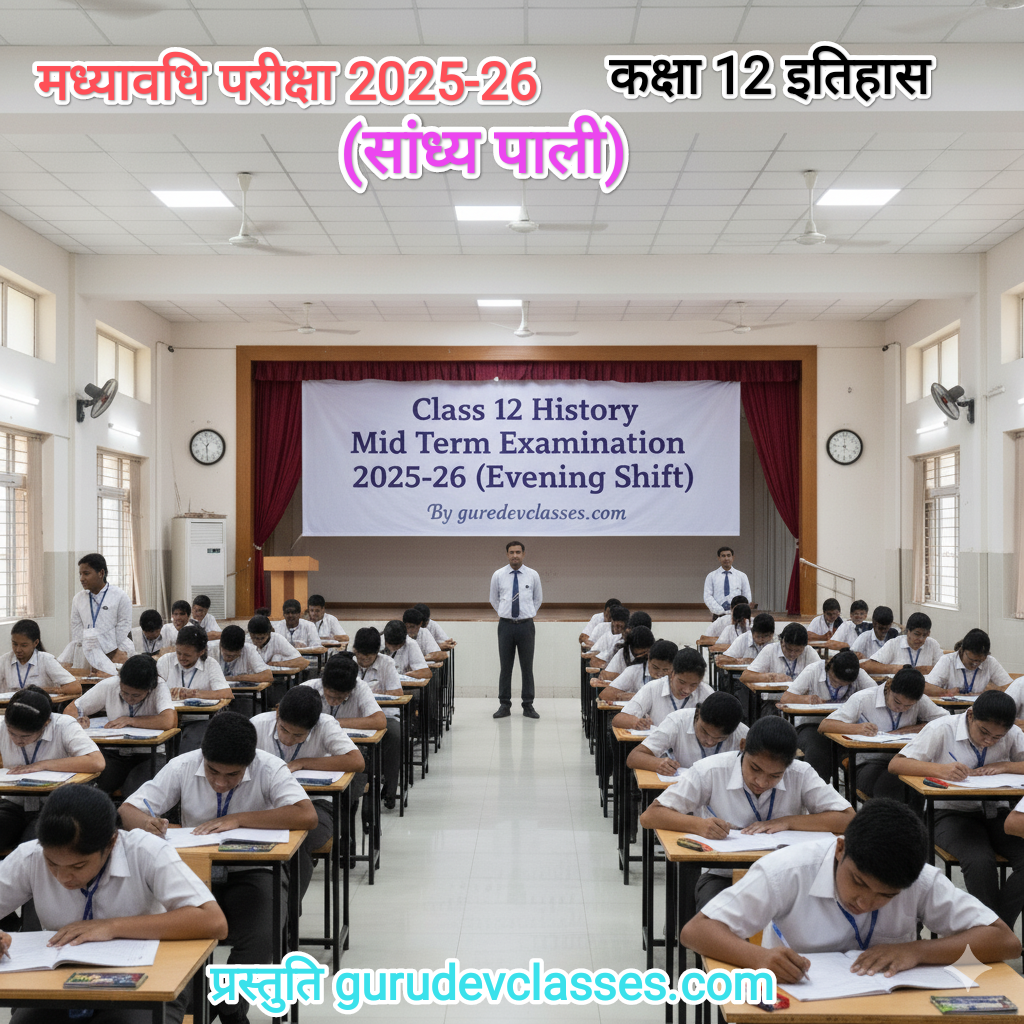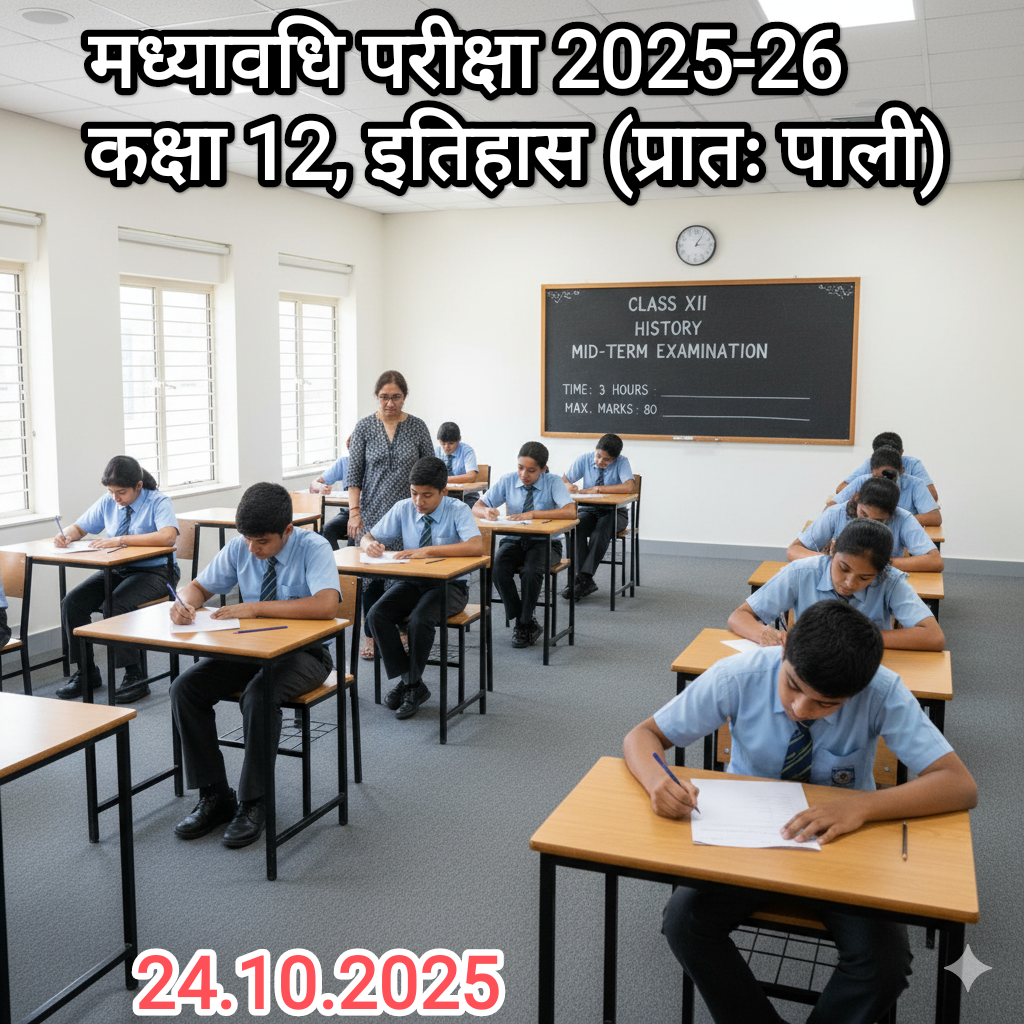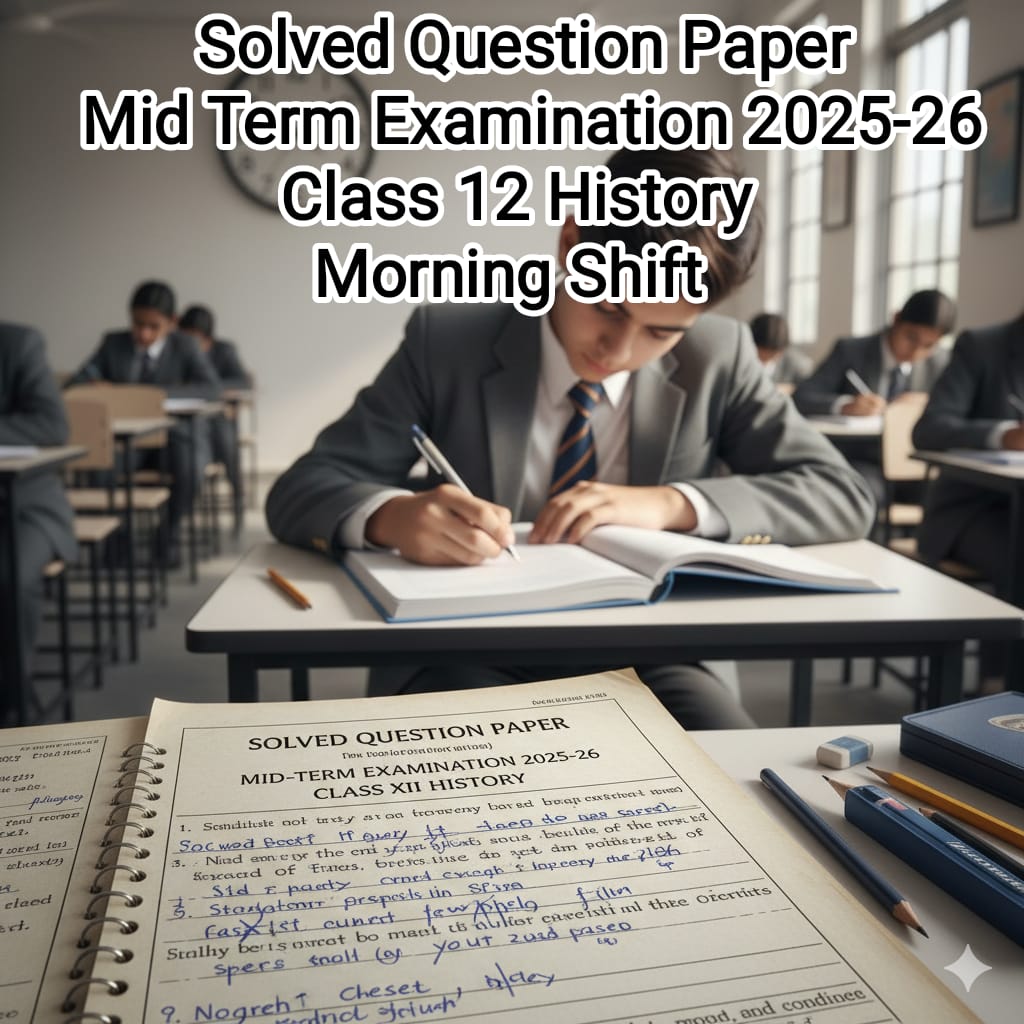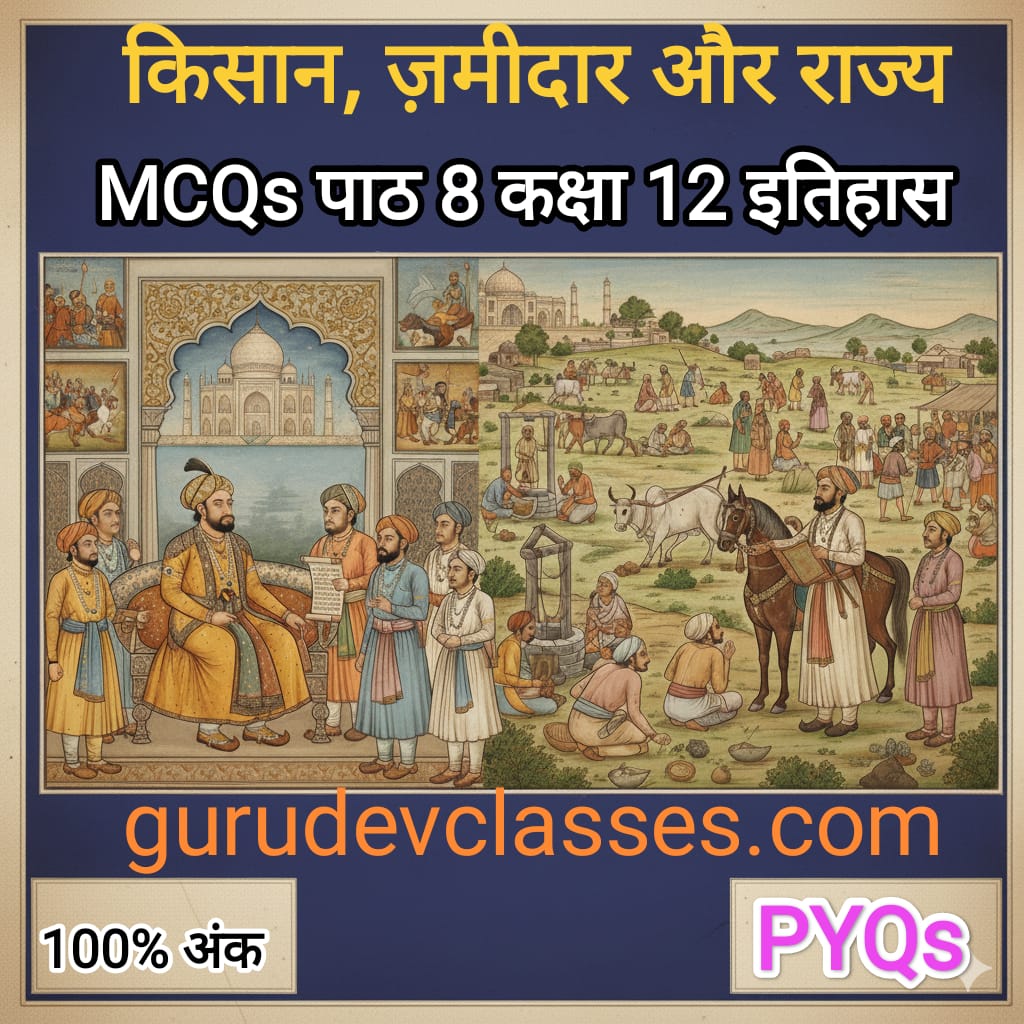Preparing for the Class 12 History mid-term exam requires a strategic approach. Since the paper includes MCQs (1 mark), 3-mark questions, and 8-mark questions, students must balance concept clarity, writing practice, and revision with previous years’ papers.
🔑 Preparation Tips
Step A. Covering All Chapters (1–8)
Read NCERT textbook thoroughly—line by line, as most CBSE questions are directly based on it.
Focus on important terms, timelines, and sources.
Highlight keywords (names, dates, inscriptions, places, thinkers, dynasties).
Step A. Notes Making & Revision
Prepare chapter-wise notes in short bullet points.
Divide notes into 3 sections:
- Facts & Keywords (dates, inscriptions, dynasties, personalities)
- Themes & Analysis (social, political, economic, cultural)
- Historians’ Views / Sources (very important for 8 markers)
Revise from notes daily; they are lifesavers in last 2–3 days before exam.
Chapter 1: Bricks, Beads and Bones – [Notes Link 🔗]
Chapter 2: Kings, Farmers and Towns – [Notes Link 🔗]
Chapter 3: Kinship, Caste and Class – [Notes Link 🔗]
Chapter 4: Thinkers, Beliefs and Buildings – [Notes Link 🔗]
Chapter 5: Through the Eyes of Travellers – [Notes Link 🔗] [ Link2 🔗] Link3 🔗]
Chapter 6: Bhakti–Sufi Traditions – [Notes Link 🔗]
Chapter 7: An Imperial Capital: Vijayanagara – [Notes Link 🔗 ch7]
Chapter 8: Peasants, Zamindars and the State – [Notes Link 🔗]
Step B. MCQs Preparation
Practice MCQs chapter-wise to strengthen factual recall.
Revise maps, sources, and case studies (very frequent in MCQs).
Benefits: Helps in quick revision and avoids negative marking due to confusion.
Chapter-wise MCQs
Chapter 1: Bricks, Beads and Bones – [MCQs Link 🔗] [ Link2 🔗]
Chapter 2: Kings, Farmers and Towns – [MCQs Link 🔗] [ MCQ Link 🔗2]
Chapter 3: Kinship, Caste and Class – [MCQs Link 🔗]
Chapter 4: Thinkers, Beliefs and Buildings – [MCQs Link 🔗]
Chapter 5: Through the Eyes of Travellers – [MCQs Link 🔗] [Link 2 🔗]
Chapter 6: Bhakti–Sufi Traditions – [MCQs Link 🔗]
Chapter 7: An Imperial Capital: Vijayanagara – [MCQs Link Chapter 7 🔗]
Chapter 8: Peasants, Zamindars and the State – [MCQs Link 🔗]
Step C. 3-Mark and 8-Mark Questions Preparation
Since both are analytical and descriptive, prepare them together:
3-Mark Questions (Short Answers):
Write answers in 3 strong points.
Keep them precise, fact-based, and well-structured.
Avoid unnecessary details.
8-Mark Questions (Long Answers):
Write in 8 clear points or subheadings.
Use introduction + body + conclusion format.
Add examples, sources, and historians’ views to enrich your answers.
💡 Tip: Preparing both together saves time, since short and long answers often overlap in content depth.
Chapter 1: Bricks, Beads and Bones – [Question Link 🔗] [🔗Link2]
Chapter 2: Kings, Farmers and Towns – [Questions Link 🔗] [Link2 🔗][Link3 🔗]
Chapter 3: Kinship, Caste and Class – [Questions Link 🔗] [Link 2 🔗]
Chapter 4: Thinkers, Beliefs and Buildings – [Questions Link 🔗] [Link🔗2]
Chapter 5: Through the Eyes of Travellers – [Questions Link 🔗] [ Link 2 🔗] Link3 🔗]
Chapter 6: Bhakti–Sufi Traditions – [Questions Link 🔗]
chapter 7. An Empirical capital : Vijaynagar- [Questions Link ch7🔗]
Chapter 8: Peasants, Zamindars and the State – [Questions Link 🔗] [PYQs Link 🔗]
Step D. Previous Years’ Question Papers (PYQs)
Solve at least last 10 years’ CBSE PYQs.
Benefits:
Identifies repeated questions & important topics.
Improves time management.
Gives a sense of exam pattern & expected difficulty level.
🔗 Previous Year Papers – [Link🔗 ]
Mid term question paper 2023-24 🔗
Mid Term Question paper 2024-25 🔗 Morning shift
Mid term question paper 2024-25 🔗Evening shift
Step E. Sample Papers & Mock Tests
Practice with sample papers to simulate exam conditions.
Benefits:
Builds confidence & speed.
Helps in self-evaluation and finding weak areas.
Strengthens answer writing skills.
🔗 Sample Papers – [Link 🔗]
Step F . Smart Revision Strategy
First round: Read all chapters and notes.
Second round: Practice MCQs + 3 & 8 marker answers.
Third round: Solve PYQs + sample papers under exam conditions.
Last round (2–3 days before exam): Quick revision from self-made notes & highlighted NCERT lines.
📌 Conclusion
By following this plan:
MCQs will ensure factual accuracy,
3 & 8 markers will ensure analytical writing,
PYQs & sample papers will ensure exam readiness.
👉 All study materials (MCQs, Notes, PYQs, and Sample Papers) will be available on [gurudevclasses.com], linked chapter-wise for easy access.






